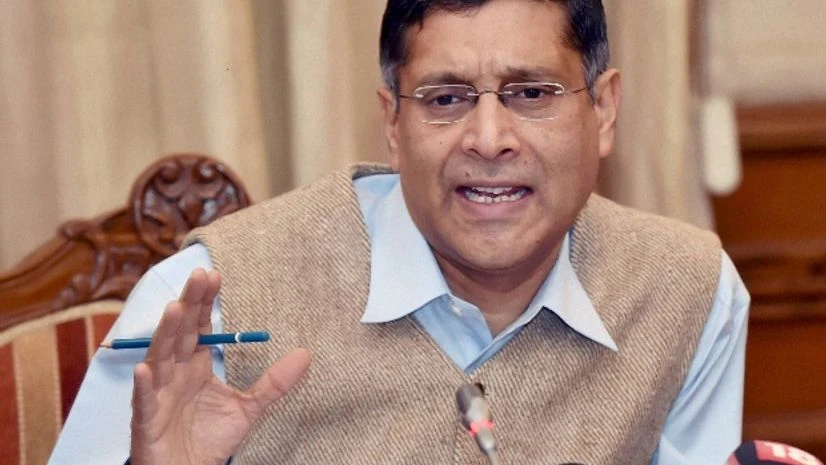While delivering presentation of the Economic Survey of India 2014-15 in a function organised by The Southern India Chamber of Commerce and Industry, Ministry of Finance and the Madras School of Economics, he said, "With the 14th Finance Commission, now you have to look at the consolidated finances - centre and States. We analysed the budget presented by 17 States. The fiscal indicators of the general government, the Centre and the States, the deficit is going to be cut substantially, even more than going from 4.1 to 3.9, and from 6.9 to 6.5, which almost what the markets expected."
The capital expenditure is going to go up in centre, but when it is combined with the states, the increase is almost 0.5 pr cent, from 4.6 to 5.1 per cent, he said.
"When you look at the central and the State finances as a whole we get more consolidation than you looking at the centre," he added. In adopting the recommendations of the 14th Finance Commission, the government made a commitment to embrace co-operative federalism, and also competitive federalism, which would be the engine going forward.
He said that the government's diagnosis was that private investment is weak in India and is going to continue to remain weak for a number of reasons."Corporate sector balance sheets are still very stressed. About one-third of firms in corporate India dont generate enough cash to repay the interest. The interest coverage ratio is less than One. As a consequence bank balance sheets are also stressed. Going forward it is not going to be easy to resolve this, though private investment is picking up slowly," he said.
There was a need for an interim catalyst in the form of public investment needs to come in, not to subplant or replace private investment, but to catalyse it and create the conditions for private investment to take place. It would be better to start with ramping up public investment in sectors such as Railways and road sector.
Speaking about the Economic Survey and the Union Budget 2015-16, he said, "Fiscal federalism, adaptation of 14th Finance Commission, addressing the need for public investment and the Jan Dhan Yojana, Aadhar, Mobile (JAM) are some of the ideas which are put forward."
"We are seeing some signs of a revival of growth. The deceleration has brought down. I think India is also a very attractive destination in an international context," he said.
More From This Section
"There has been a structural shift in inflation, and going forward, our projection for the year for inflation is about five to 5.5 which is below the RBI's target of six per cent. The shift is due to three reasons including the crude prices have come down, and all the expectations are that they will be relatively lower going forward. The rural wage growth has sharply been decelerating, to somewhere around three per cent, year on year. The household inflation expectations has seen a plunge November-December," he added.
Based on these the government said that inflation would be lower than the RBI expects and going forward this is going to be positive for the Indian economy, he said.

)
